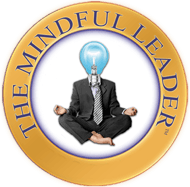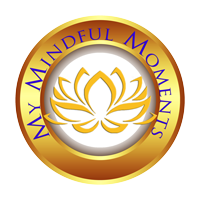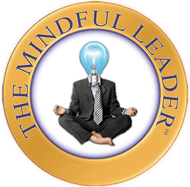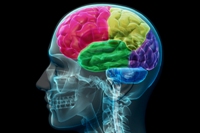One aspect of mindfulness is beginning to take conscious notice of different levels of connection we experience throughout our lives. One concept about those levels of connection is called the ripple effect. The ripple effect is how your emotional energy, thoughts, words, and actions may affect those whom you interact with, and in turn how that shifts their emotional energy, thoughts, words, and actions, and how that continues to spread outward with each person whom they interact with, and so on. This ripple effect has no logical end because we’re dealing with intangible emotional energy, so there is absolutely no telling just how far this ripple may extend. Knowing this, you can begin to pay attention and witness this happening, and if you don’t feel good about the types of ripples you’re setting into motion, you are the only person with the power to change them into something more productive. Read on to learn more about the ripple effect and how you may be affecting your environment and relationships, and how the energy you send out is reflected back to you in your experiences.
We’ve all heard sayings like, “You get what you give,” and, “Whatever you do comes back to you.” For most of us, the deeper meaning of these types of statements isn’t something we think about consciously because, on the surface, it doesn’t seem nearly as important as it does when you go deeper, and the connections aren’t obvious until we beg8in to pay attention.
The energy and emotional mood you hold, how you handle those things, and how you show up to interact with others are all things that have the ability to influence your world and everyone in it either in a constructive or destructive way. The majority of people are still doing this on an unconscious level, which simply means that most of us are still unaware of all of the levels of influence we have, not to mention of all of the different external stimuli that may be affecting us. This can be more easily understood on all levels by doing one simple thing in each moment: paying attention, also known as practicing mindfulness.
Now, hear me out for a moment because I know it can initially feel like an impossible undertaking to be aware in every single moment. When I first learned about this concept and began to put mindfulness into practice several years ago now, there were periods of time when this awareness seemed impossible to maintain and I would think to myself, “How in the world am I supposed to keep up with all of this so constantly and continuously? How do others make it look so easy?”
Don’t concern yourself with so much doing. Think of mindfulness practice less like a task you must complete and more like a habit you integrate into your moment to moment existence, which allows you to practice mindfulness on an almost constant basis whether you’re “meditating” in the traditional sense or not. When you make the conscious decision to begin noticing things, you may even begin surprising yourself with just how much information you are processing on a continuous basis and how much of it you have been conditioned to ignore.
So, one of the things today’s culture has been conditioning us to ignore or not pay attention to is our emotional state of being. This whole, “emotions not allowed,” attitude always baffled me because how can you simply ignore something that feels so big? Isn’t there a better way than by pretending they don’t exist and therefore suppressing them?
Fortunately for all of us, science is now proving the incredible importance of emotions as they pertain to our energetic state and how that affects the physical body, not to mention the influence we have on our own emotions by learning to direct our thoughts and properly process our feelings. Science is also proving the incredible benefits of mindfulness practice because it is a combination of soft, subtle internal shifts, but has countless benefits that seep into every aspect of your life.
Here’s the thing. Once you “wake up” and choose to be conscious and aware of your contribution to the world on more levels, you cannot undo it. There’s no going back. Your understanding and awareness will only deepen, expand, and evolve as you learn and integrate more information and knowledge, and you will experience a deep and profound sense of knowing that could be likened to faith but is much more powerful because it’s a knowing deep within your core. What you know and the topics concerned don’t matter; this is just a general illustration of the feelings of this aspect of the process.
With all of that being said, here are three ideas to help you take notice of the ripples you are setting into motion and how they might expand, as well as how these energies you send out may come back to you.
- Sometimes the smallest positive interaction can change the course of someone’s entire day, if not their life. If nothing else, it helps restore a little faith in humanity between two individuals and reassures us that people are not, in fact, terrible or out to attack and hurt each other. Yes, there are people like that, but the majority of people are just like you and me: living life, seeking fulfillment, and trying to find their daily, effortless joy.
Whether your interactions are positive or negative, their effects will echo and ripple outward because there is an energetic exchange going on beneath the surface of our perception. If you have an interaction with someone that is frightening, makes you angry, or hurts you in some way, then chances are it will affect you for a little while, and the next person or people whom you interact with will “catch” some of your energy and it may color their interactions without anyone understanding what’s going on.
I’m sure you’ve had this kind of experience, when something happens while you’re out at a store or driving, running an errand, etc. It leaves you with questions about what you might have done to provoke someone’s anger (or another emotion), and there’s a good chance that this person may not even have been angry with you, but with something else entirely, maybe even from before because they are starting their own ripple through you, or maybe someone before started it. Then you take that troubled energy home with you and your family knows something is wrong, but you don’t feel like it’s necessarily something to share, so they begin to wonder what’s wrong and, in some cases, speculating or jumping to conclusions about possibilities based on the information within their perception.
They then carry this troubled energy and worry or concern with them the next day to work or school, spreading a negative ripple even further. From here, it could keep going exponentially, affecting things on a large and small scale until the energy has fizzled out and fades away.
Part of the problem today is that the majority of us don’t understand how to stop the ripple once it gets to us. This is similar to breaking a cycle. And because most people aren’t aware of what’s happening on an energetic level, they are ill-equipped to stop the ripple. You can’t heal what you aren’t even aware of, so this is where mindfulness comes in.
- Take notice of the “vibes” you pick up on in the moment, and trust your intuition about them. If you get the sense that someone you’re interacting with is carrying an emotional burden of some sort that may cause them to initiate numerous negative ripples, you may choose to ask this person, “Is there something bothering you that I might be able to help with?” This person might be you, in which case you may ask yourself the same thing.
It often happens that someone is concerned about something and it manifests as angry outbursts. It can also manifest as sloppiness on the job and a lack of focus, so holding on to negative energy without processing it properly can cause all kinds of drama and chaos in your physical experience. That’s why it’s so important to learn how to let go of emotions that don’t serve you quickly. This will be different depending on what you’re working through internally, but the key mindset to develop here is one of compassion, nonjudgment, and forgiveness, toward yourself as well as others.
This allows you to more easily recognize when someone is being reactive and influenced by negative emotions they may be suppressing. This also allows you to more easily recognize when you are being reactive and influenced by negative emotions you may be suppressing. In many situations, both could be true at the same time.
- How do you interact with your moment to moment experience? Do you carry with you a sense of awe and wonder at the world? Or do you spend your commute silently criticizing everything you see? Do you approach people with an open demeanor or a condescending one? Are you kind more often than not? Appreciative when someone does something for you such as holding a door open? Or do you find something to pick apart with each interaction and experience?
It’s important here to be very honest with yourself, but also to not beat up on yourself if you find that you’ve fallen into a habit of complaining or criticizing. If we’re honest, most of us have probably fallen into some kind of habit such as this that doesn’t serve us and affects the way we interact with life and others in ways we may not even be aware of. The “bad” news is that being honest with yourself about these types of things has a tendency to bruise the ego a little bit, to shake up your sense of pride and humble you. The “good” news is that it’s never too late to refine your habits, and the long-term benefits of doing this are countless and amazing, not only for you, but for everyone around you as well as the collective.
The effect you have in the world, the intangible, energetic impact you have on the whole, begins from within you and how you feel, what kind of emotional energy you carry out into the world and spread around, so to speak. The specific emotions don’t matter, although it very much makes a difference whether the emotions you’re allowing to influence your contribution are positive or negative, based in love or based in fear.
Your intent also matters, and how you view other beings that you interact with. If you look down on people and think you’re better than others, the response you’ll receive won’t be good because this type of attitude shows unhealthy narcissism. If you treat other beings with kindness and a sense of respect for the miraculous spark of the divine that they are (just like you), this will create ripples of love, light, peace, and cooperation.
As a mindful leader, it is especially important to understand what kind of ripple effect you are having on those whom you lead. This could mean the difference between being respected and being feared. It could mean the difference between being trusted or being left out of the loop. It could mean the difference between developing a thriving workplace culture and developing a dysfunctional one.
It all begins with you, from within. That’s where your ripples originate, and that’s the only source of ripples that you have influence or control over. You hold a vast power within you, the power to influence your experience intentionally, and all you have to do to embrace this power is decide to.
Thanks so much for being here! I hope you join us back here next week for a new article about the ripple effect.
For more information about the Mindfulness Movement or the International Mindfulness Federation, please visit:









